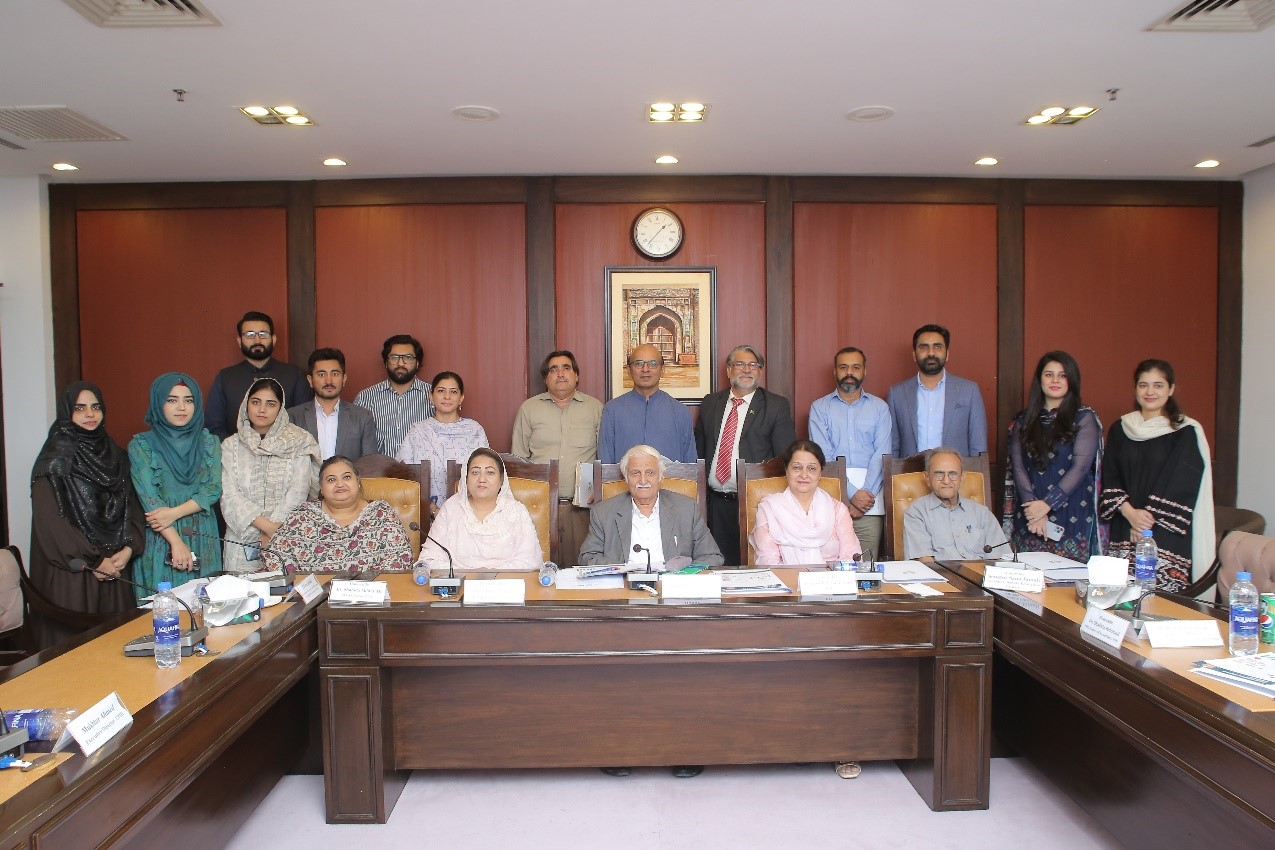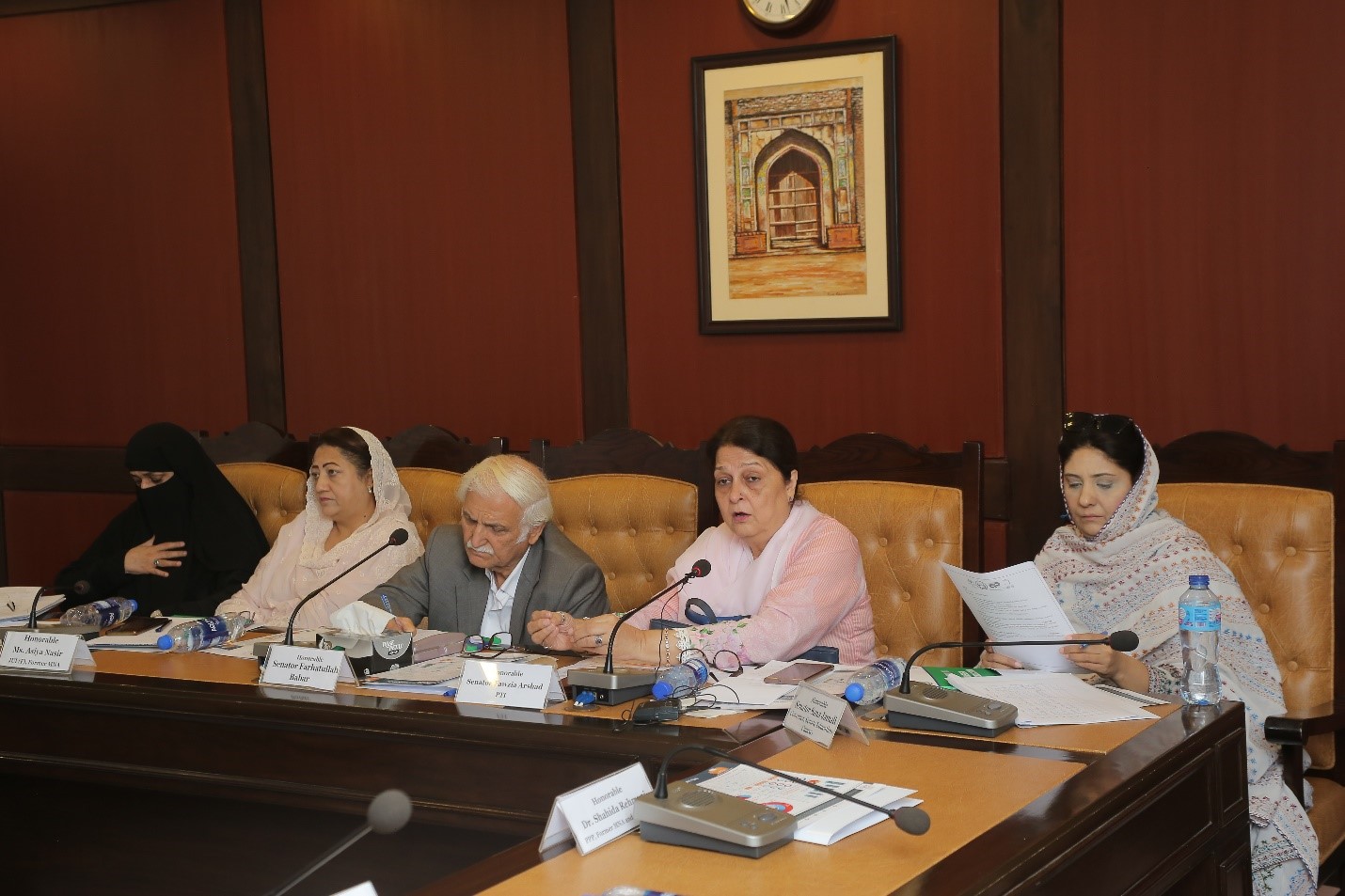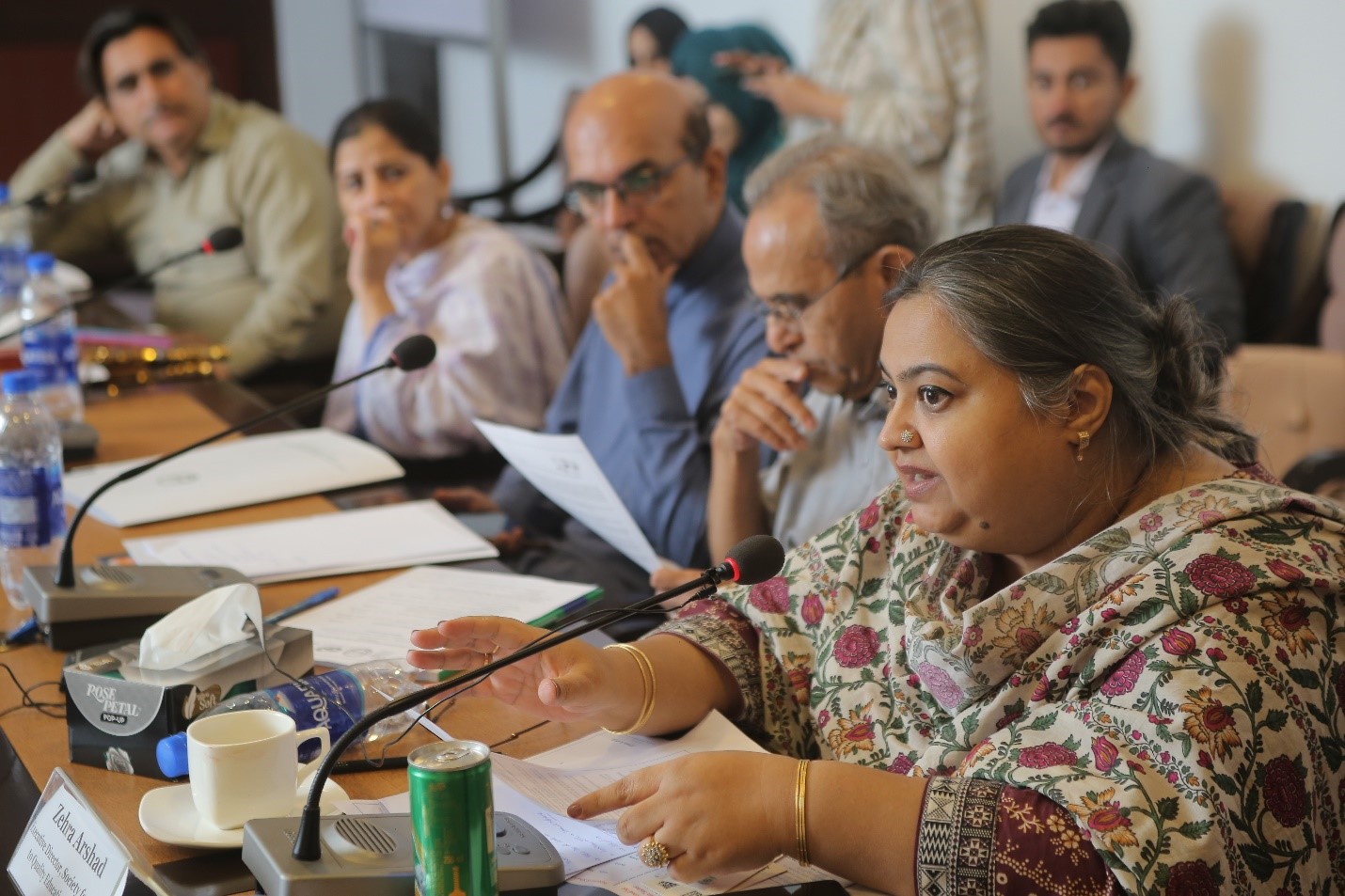Disclaimer: Website Under Maintenance: Our website is currently under maintenance. We apologize for any inconveniences.

The Roundtable Discussion on Education Reforms and Inclusion in Pakistan convened on October 4th, 2023, was a significant event that brought together political leaders, policymakers, educators, activists, and experts. The event, a collaborative effort of the Society for Access to Quality Education (SAQE), Pakistan Youth Change Advocates (PYCA), the Center for Peace and Development Initiatives (CPDI), and Pakistan Institute for Parliamentary Services (PIPS), aimed to shed light on the critical issues concerning education in Pakistan ahead of the 2024 general elections.
Chaired by Hon. Senator Farhatullah Babar, the discussion focused on the pressing issues facing Pakistan's education system. The meeting was marked by passionate and informative contributions from various participants, including Zehra Arshad, Executive Director, SAQE; Areebah Shahid, Executive Director, PYCA; Hon. Ms. Asiya Nasir, former MNA, JUI (F); Hon. Ms. Fawzia Arshad, Former MNA, PTI; Hon. Ms. Shahida Akhter Ali, former MNA, JUI (F); Hon. Ms. Shaza Fatima Khawaja, former SAPM and MNA, PML (N); Hon. Senator Sana Jamali, Convener, Senate Education Caucus; Mukhtar Ahmed, Executive Director, CPDI; Muhammad Rashid Mafzool Zaka, Director General (Research), PIPS; Muhammad Anwar, Executive Director, PIPS; Dr. Abdul Hameed Nayyar, a physicist and education expert; and Dr. Bashir, a psychologist.

The participants' perspectives and solutions proposed highlighted several critical issues in Pakistan's education system:
Zehra Arshad, Executive Director SAQE presented a comprehensive Charter of Demand that offers a strategic roadmap for revitalizing Pakistan's education sector. It addresses marginalized groups, educational infrastructure, resource allocation, and education delivery.

The discussion led to a consensus on key steps forward:
The Roundtable Discussion provided a comprehensive perspective on challenges and potential solutions in Pakistan's education sector. The commitment of political parties to prioritize education in their manifestos for the 2024 general elections is a promising step toward meaningful reform. By addressing the identified challenges and implementing the recommended solutions, Pakistan can ensure every child receives a quality education, regardless of their background or abilities, paving the way for progress and prosperity.